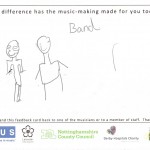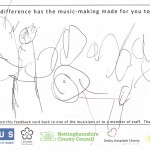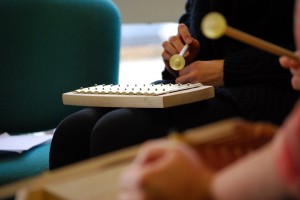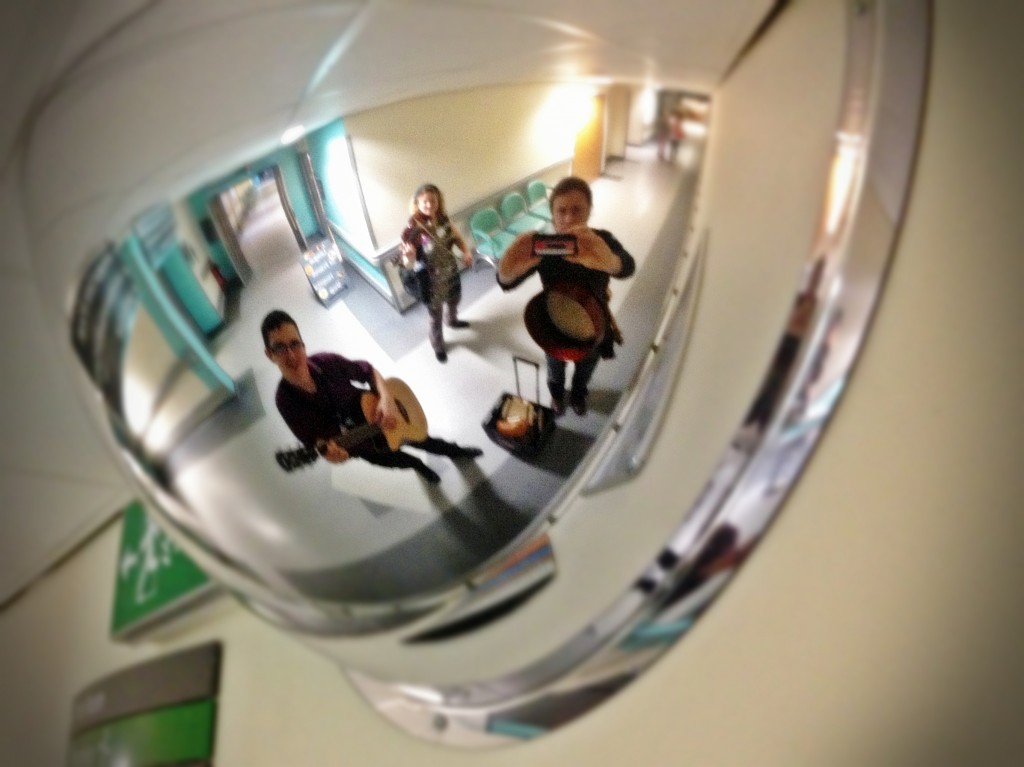Taking time to be with people
A big part of our work as musicians in hospitals is to be there as a musician and a human being spending time with other human beings, to make music for and with them and to create a cultural venue within a clinical environment.
We often get asked if it is emotionally difficult to spend so much time in hospitals, especially with children. There are, of course, always emotional moments in our practice, and we allow ourselves to be emotional as part of our professional practice, indeed it is important that this emotion becomes part of our music-making to allow us to be ‘in-tune’ with the patients, visitors and staff with whom we work. We must always be careful, however, that we do not project our own emotions onto others – this is also part of our professional undertaking.
It is, however, more normal for us to work with the well-part of the person, to enhance and support the cultural, vibrant, and well part of the person. Medical staff work hard to take a holistic approach to their work, however, they are principally there to treat the illness. We are hugely privileged to be able to take the time for this approach, one which seems to complement and support the work of the hospital staff so well.
Over recent weeks, we have seen this human-to-human approach work so well. In Sheffield Teaching Hospitals, working with elderly patients and those with spinal and neurological injuries, we have recently been able to take more time to explore musical interests with individual patients, to support them in singing and playing musical instruments with us, and to rediscover their creative and cultural selves. Medical staff have observed and taken part in some of these sessions, making new, human-to-human contact with patients and seeing new potential despite their illness or injury. It is fantastic to be able to support these new patient-staff partnerships.
In children’s hospitals, the time spent with individual patients and their families becomes special time, time for a parent and new baby to bond in a neonatal intensive care unit, time for ‘normal life’ to resume if only for a moment, time for music 🙂 When doctors, nurses and other hospital staff become part of these interactions, the space and relationships within the hospital change completely, and we are all human beings together.
Leo Tolstoy wrote (What is Art, 1897):
‘… In order correctly to define art, it is necessary, first of all, to cease to consider it as a means to pleasure and to consider it as one of the conditions of human life… Art is a human activity consisting in this, that one man consciously, by means of certain external signs, hands on to others feelings he has lived through, and that other people are infected by these feelings and also experience them.’
It’s wonderful to be able to share music-making, a ‘condition of human life’, with all those we encounter in hospitals.
